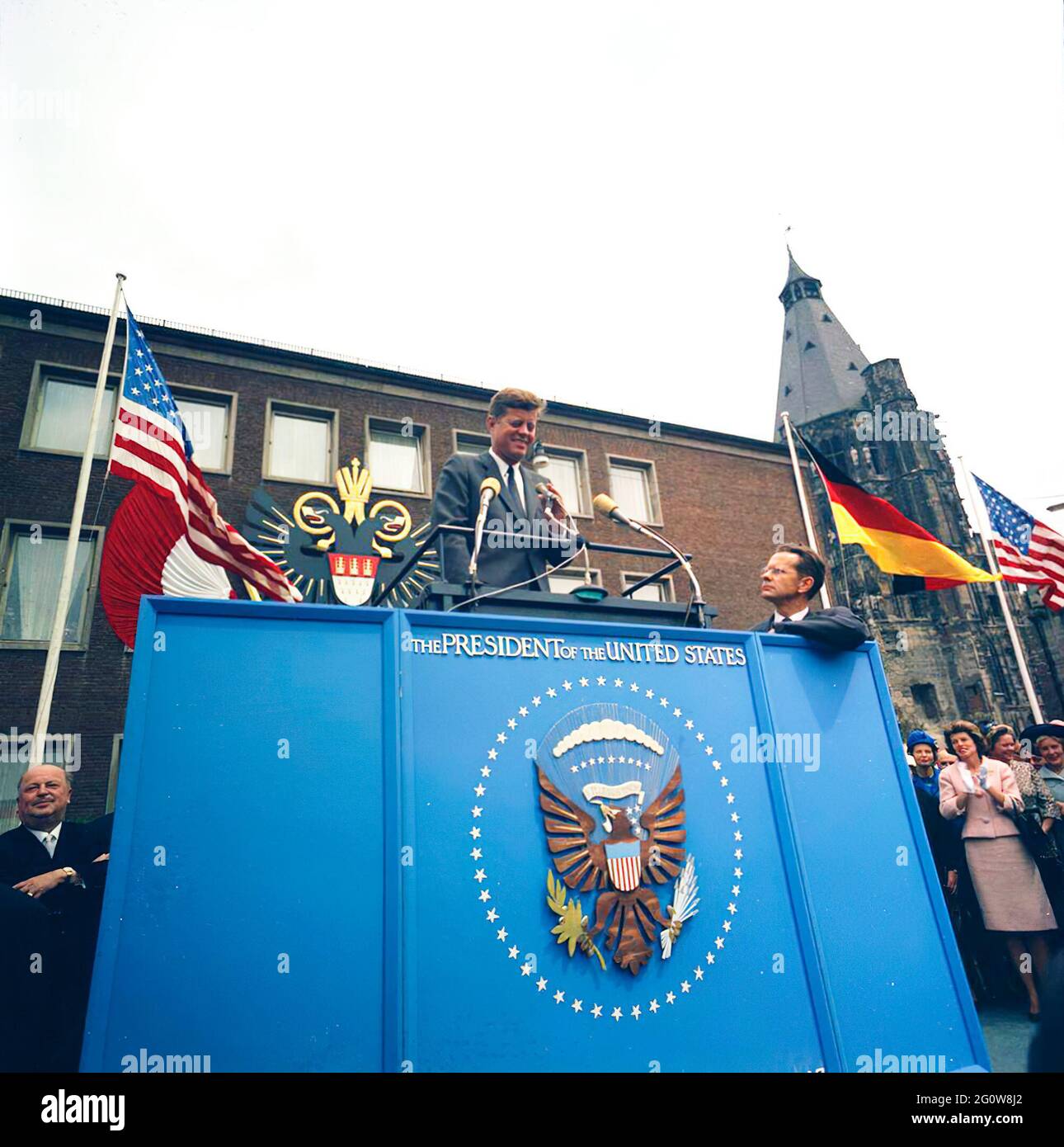KN-C29238A 23 June 1963 President John F. Kennedy's visit to Cologne. President Kennedy stands at a speakers podium with interpreter Robert H. Lochner at his side. Eunice Shriver and others view the President's address. City Hall, Cologne, Germany. Please credit "Robert Knudsen. White House Photographs. John F. Kennedy Presidential Library and Museum, Boston"

Image details
Contributor:
American Photo Archive / Alamy Stock PhotoImage ID:
2G0W8J2File size:
11.6 MB (400.2 KB Compressed download)Releases:
Model - no | Property - noDo I need a release?Dimensions:
2006 x 2020 px | 34 x 34.2 cm | 13.4 x 13.5 inches | 150dpiDate taken:
19 April 2016More information:
This image is a public domain image, which means either that copyright has expired in the image or the copyright holder has waived their copyright. Alamy charges you a fee for access to the high resolution copy of the image.
This image could have imperfections as it’s either historical or reportage.
John Fitzgerald Kennedy (May 29, 1917 – November 22, 1963), often referred to by his initials JFK, was an American politician who served as the 35th president of the United States from 1961 until his assassination in 1963. Kennedy served at the height of the Cold War, and the majority of his work as president concerned relations with the Soviet Union and Cuba. A Democrat, Kennedy represented Massachusetts in both houses of the U.S. Congress prior to becoming president. Kennedy was born into a wealthy, political family in Brookline, Massachusetts. He graduated from Harvard University in 1940, before joining the U.S. Naval Reserve the following year. During World War II, he commanded a series of PT boats in the Pacific theater and earned the Navy and Marine Corps Medal for his service. After a brief stint in journalism, Kennedy represented a working-class Boston district in the U.S. House of Representatives from 1947 to 1953. He was subsequently elected to the U.S Senate and served as the junior senator for Massachusetts from 1953 to 1960. While in the Senate, Kennedy published his book, Profiles in Courage, which won a Pulitzer Prize. In the 1960 presidential election, he narrowly defeated Republican opponent Richard Nixon, who was the incumbent vice president. Kennedy's humor, charm, and youth in addition to his father's money and contacts were great assets in the campaign. Kennedy's campaign gained momentum after the first televised presidential debates in American history. Kennedy was the first Catholic elected president. Kennedy's administration included high tensions with communist states in the Cold War. As a result, he increased the number of American military advisers in South Vietnam. The Strategic Hamlet Program began in Vietnam during his presidency. In April 1961, he authorized an attempt to overthrow the Cuban government of Fidel Castro in the failed Bay of Pigs Invasion. Kennedy authorized the Cuban Project in November 1961.